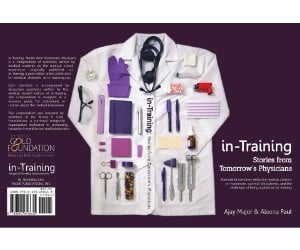
Advice from 20+ interviews: Part 1
I did 21 interviews. Don’t ask how much it cost because I don’t enjoy thinking ... Read more
Written by: bluestreaks
Published on: November 1, 2016

I did 21 interviews. Don’t ask how much it cost because I don’t enjoy thinking ... Read more
Written by: bluestreaks
Published on: November 1, 2016

Central to the skillset of every physician is the differential diagnosis; this is the process ... Read more
Written by: Brent Schnipke
Published on: October 31, 2016

Despite being on the top of a hill, the hospital was remarkably unimposing and unimpressive: ... Read more
Written by: Emma Cox
Published on: October 27, 2016

Republished with permission from here. Note: Interview conducted by medical student editor Evan Torline. Sometimes ... Read more
Written by: Evan Torline
Published on: October 26, 2016

Medicine needs a strong core of leadership now more than ever. Medical students and new ... Read more
Written by: Sidney Christiansen
Published on: October 19, 2016

I strolled into second year, fresh off the plane from my South American adventures and ... Read more
Written by: Adelle
Published on: October 17, 2016

It’s important to remember that as you prepare for and apply to medical school, there ... Read more
Written by: AAMC Staff
Published on: October 13, 2016

It is not just nostalgia and excitement that grips me as I am nearing the ... Read more
Written by: Butool Hisam
Published on: October 11, 2016

Although repeated to the point of being cliche, “to help people” is one of the ... Read more
Written by: Brian Wu
Published on: October 10, 2016

By Amy Rakowczyk One thing is certain during medical school: your medical spouse is going ... Read more
Written by: Amy Rakowczyk
Published on: October 6, 2016

Consider these three questions. First, what is a loan? Second, how is it typically is ... Read more
Written by: Tae Kwan
Published on: October 5, 2016

When did you first hear about medical scribes? I first heard the term ‘medical scribe’ ... Read more
Written by: Alyssa Kettler
Published on: October 4, 2016

In early 2012, medical students Ajay Major and Aleena Paul started in-Training.org, a website dedicated ... Read more
Written by: Student Doctor Network
Published on: September 29, 2016

Republished with permission from here. Earlier in the summer, I was speaking with a friend ... Read more
Written by: Brent Schnipke
Published on: September 28, 2016

While your dream of getting accepted to medical school probably involves countless nights studying, hundreds ... Read more
Written by: AAMC Staff
Published on: September 27, 2016

Central to the skillset of every physician is the differential diagnosis; this is the process ... Read more
Written by: Brent Schnipke
Published on: September 26, 2016

Organic Chemistry is a hurdle every premed must undertake. For many, it can dissuade you ... Read more
Written by: StudySchedule
Published on: September 22, 2016

Follow these six steps to achieve Shelf Exam success
Written by: ExamGuru
Published on: September 21, 2016

Before medical school, the dream of becoming a physician involves helping people and curing disease. ... Read more
Written by: Universal Notes
Published on: September 20, 2016